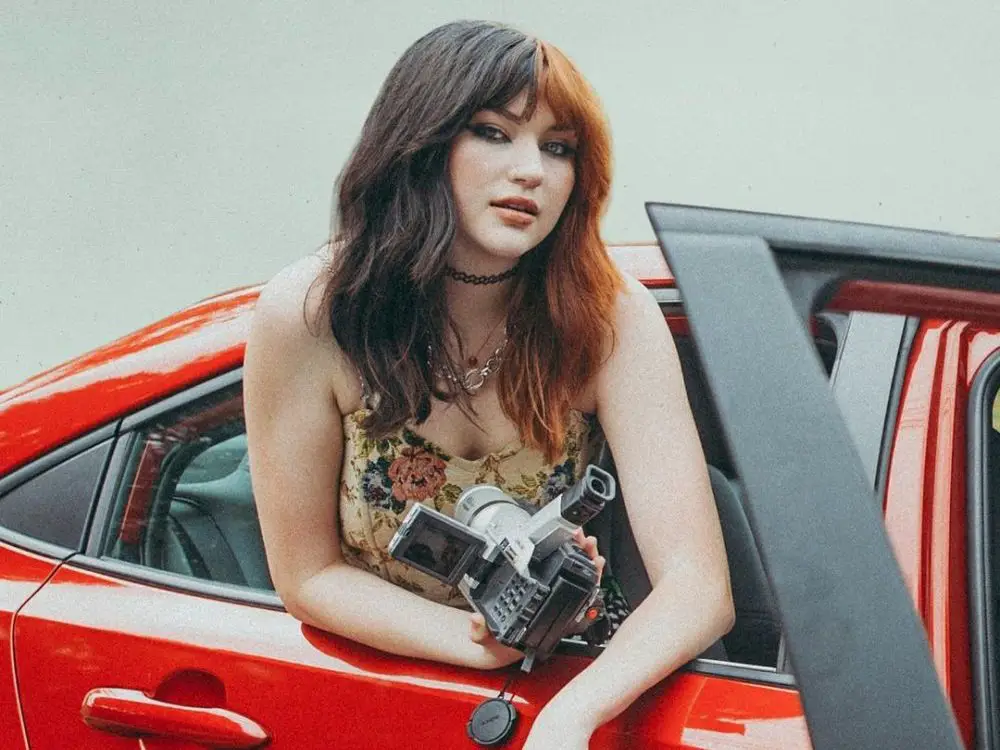With the immense popularity of streaming services like Spotify and Apple Music as well as the rise in accessible editing software programs, independently producing and promoting original music is easier than ever before. The days when aspiring musicians needed to sign with a record label to share their art with the world and make a living are long gone. Instead, rising acts can grow an internet following before joining a larger music group or they can choose to stay independent. Many artists start by adding original songs to social media platforms such as TikTok in hopes that the algorithm will expose their audio to as many users as possible. Some examples of people who gained fame from posting their music on TikTok include Lil Nas X, Ashnikko and Tate McRae. The increased success of authentic musical artists from humble backgrounds has led to a trend on the popular app: users accusing up-and-coming viral hit creators of being industry plants.
What Are Industry Plants?
The definition of an industry plant is highly disputed, but a basic explanation is a musical act who has financial backing from a record label but presents themselves as a “‘homegrown start-up’ to create the illusion of an organic following.” Industry plants deceive their audience into believing that they achieved their dreams because of the support from their fans, rather than larger, more established forces. The term initially referred to certain figures in hip-hop culture and has been applied to other genres since, especially pop music. Another aspect of the label is nepotism. Even though it is debated as to whether or not people with personal connections to the music business count as industry plants, some do consider familial influence and generational wealth to be a part of the concept.
Recent Industry Plant Accusations
One of the latest examples of a supposed industry plant is 17-year-old singer-songwriter Taylor Gayle Rutherford, known publicly as GAYLE. Her major-label debut single, “abcdefu” — released in August — went viral on TikTok, peaked at No. 3 on the Billboard Hot 100 chart and has been performed live on programs like “The Tonight Show Starring Jimmy Fallon” and “MTV Push.” Soon after the track garnered traction online, TikTok users and various discussion forums, more specifically r/popheads, questioned the genuineness of GAYLE’s newfound popularity and the background behind “abcdefu.”
Despite the fact that major support from her label, Atlantic Records, was not kept secret from the general public, elements of the creation and publicity of the song appear to be purposefully misleading.
The cover art and music video of “abcdefu” possess a DIY quality similar to many independent artists. The single’s cover art features a real X-ray of GAYLE’s once dislocated middle finger, which was scanned and made into a low-quality image. The opening of the music video is a title card with the words “me and my friends visit my ex’s house :),” which then leads to camcorder footage of the singer and her friends. The home-video feel of the song could be seen as attempting to replicate indie musicians’ low-budget aesthetic, but they might just be specific artistic choices.
The strongest piece of evidence against GAYLE’s “organic” discovery originates from a TikTok she posted in July 2021. In the video, she introduced herself with “Hello, my name is Gayle, 1’m 17 and I live in Nashville and I make pop music.” After she did so, the artist asked users to post songs ideas in the comments. A day later, she responded to a comment made by the user @nancy_berman to craft a “breakup song using the alphabet” with a TikTok where GAYLE sings an acoustic version of “abcdefu.” The following week, after the video gained attention, she announced the song’s official release under Atlantic Records. The track then went viral.
About two months ago, TikTok user @danielswall posted a video that pointed out that the @nancy_berman account seems to belong to Nancy Berman, the manager of digital marketing for Atlantic Records. The revealed information indicates that GAYLE had been working with a big record label prior to her initial TikTok and was not an independent artist. From there, she became known as an industry plant.
Matters have been made worse by GAYLE’s dismissal of the claims and her refusal to address the criticism in a clear manner. Despite the opportunities she’s had in various interviews to clarify the story of “abcdefu,” the singer and her team remain silent on the topic.
The Desire for Authenticity in Music
The desire for authenticity from musical acts has been around for decades. Music listeners doubting the legitimacy of certain singers or bands found expression in the label “poser” from the punk movement in the 1970s and rap and hip-hop artists from the ‘90s. Although past eras of music emphasized organically grown talent, Generation Z has demanded this quality more than ever before. Younger people are known for their insistence on more honesty from brands and general outspokenness. These traits translate into their views on the entertainment they consume, which is then expressed on social media platforms. Gen Z fixates on and accuses others who seem ingenuine of being industry plants through these online channels.
The accusations leveled at rising singers with popular songs on TikTok never end. Almost every week there is a new person labeled an industry plant. Also, due to the ease of making and spreading TikToks, the frequency at which these videos are produced is quite rapid. Some more examples of “industry plants” that dominated users’ “For You” pages are singer Olivia Rodrigo and punk pop band Tramp Stamps. Videos upon videos have been posted on the acts and how they could be industry plants.
The Problem with Classifying People as “Industry Plants”
Even if the above musicians are industry plants, there is no way to actually know if someone is one or not. People can collect “proof,” but the term is so loose that it is almost impossible to truly assign anyone the label. Moreover, the industry itself is already manufactured, and there are components of the music business people are not and will never be aware of. Plus, TikTok users do not have every single piece of information regarding a person or band’s career. Sometimes the title is even given to disliked artists without any sort of plausible reason. Unless a musical artist admits to being one, an artist or band cannot confidently be called an industry plant.
This trend connects to a larger, deep-seated frustration: Society has never been a true meritocracy. There are a multitude of talented musicians in the world who will never get a chance to become full-fledged artists because of their financial status.
Musicians who do receive record deals without prior connections have the means to consistently create music, submit demos and attend various meetings. One person who was not an industry plant and has experienced success is iconic singer-songwriter Taylor Swift. She had no previous associations with the industry; however, her family was wealthy enough to move from Pennsylvania to Tennessee to help Swift pursue a country music career. Most people would never be able to do the same. Most people must work a regular job to be able to survive, and then hope for free time to craft songs.
Also, not everyone lives in or near musical hubs like Los Angeles, Nashville or New York. Aspiring musicians from other areas with little money can only rely on themselves and their limited resources if they want to play music professionally. Watching mediocre musical artists pretend to have developed a fanbase on their own platforms reveals their immense privilege, which is practically a slap in the face to struggling musicians.
In a certain light, Gen Z’s denunciation of “industry plants” is a way for younger people to reclaim power and push back against the inherent unfairness in the music business. While this issue can only be solved by the industry on an internal level, each person makes the choice as to who they support. One can decide to avoid industry plants and support authentic artists.
















